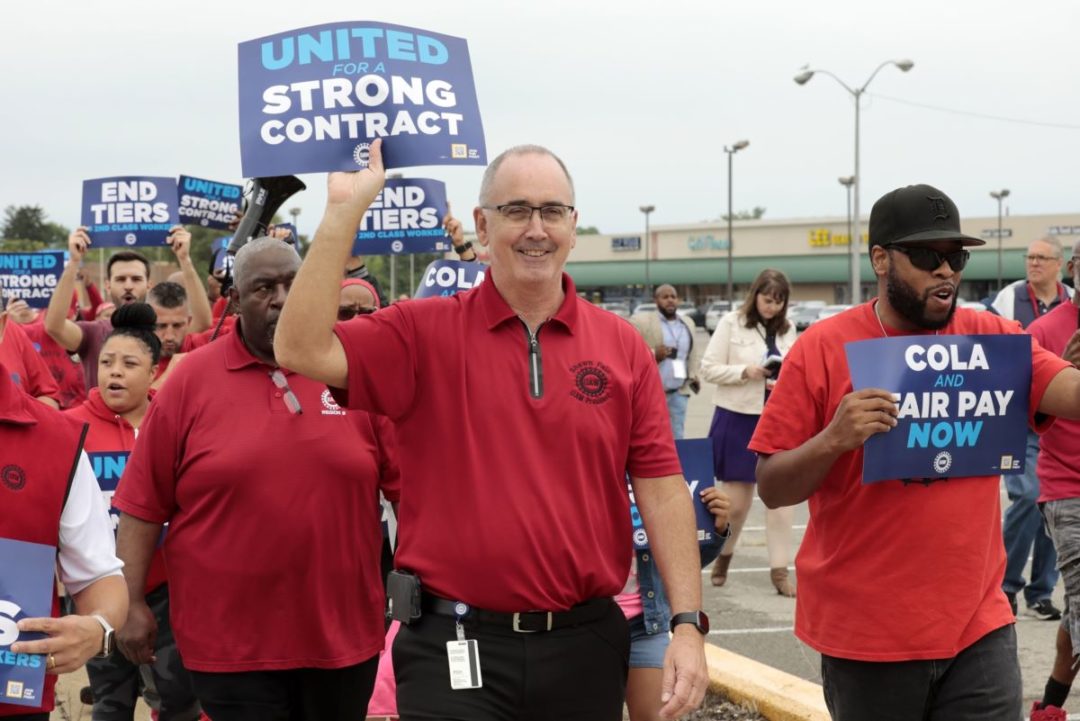
Visit Our Sponsors |
|
|
|
|
|
|
|
|
|
|
|
|
|
|
|
|
|
|
|
|
|
|
|
|
|
|
|
|
|
|
|
|
|
|
|
|
|
|
|
|

Shawn Fain walks with demonstrators during a UAW practice picket outside the Stellantis Mack Assembly Plant in Detroit on Aug. 23. Photo: Bloomberg
The United Auto Workers gave union leaders permission to call a strike against the biggest U.S. carmakers if they fail to agree on a new contract before September 15, a procedural formality that sets the stage for three weeks of tough negotiations.
An overwhelming majority of the rank and file at each company voted to authorize a potential strike, the UAW said August 25, a move intended to give union leaders more leverage at the bargaining table. Newly elected UAW President Shawn Fain has suggested that if Ford Motor Co., General Motors Co. and Stellantis NV don’t give up more ground, the union could break with tradition by striking at all three companies instead of just targeting one.
Fain ruled out an extension of the current contract to allow negotiations to continue beyond the expiration date, effectively delivering an ultimatum to auto executives. Contract extensions are a common feature of labor talks if a deal is within reach.
“We have a lot of options that we’re looking at but extensions on the contract is not one of them,” Fain told union members during a webcast after the vote results were announced.
Fain, a reformer elected on promises of holding the auto companies to account after a corruption scandal sent two of his predecessors to prison, says automakers have posted record profits on the back of union sacrifices in the run-up to the financial crisis over a decade ago. The companies estimate that agreeing to all the union’s demands would cost each company more than $80 billion over the four-year contract.
The standoff threatens to shut down a major section of the U.S. economy for the second time in five years. The UAW in 2019 went on strike against GM for six weeks, costing the company about $3.6 billion in lost earnings before interest and taxes, according to RBC Capital Markets.
Striking all three automakers nationally could quickly drain the UAW’s strike fund, which has more than $825 million in it. Fain may opt to strike individual plants at each company, or strike one nationally and picket others at the local level, said Marick Masters, a business professor at Wayne State University in Detroit.
RELATED CONTENT
RELATED VIDEOS
Timely, incisive articles delivered directly to your inbox.



.jpg?height=100&t=1715228265&width=150)


